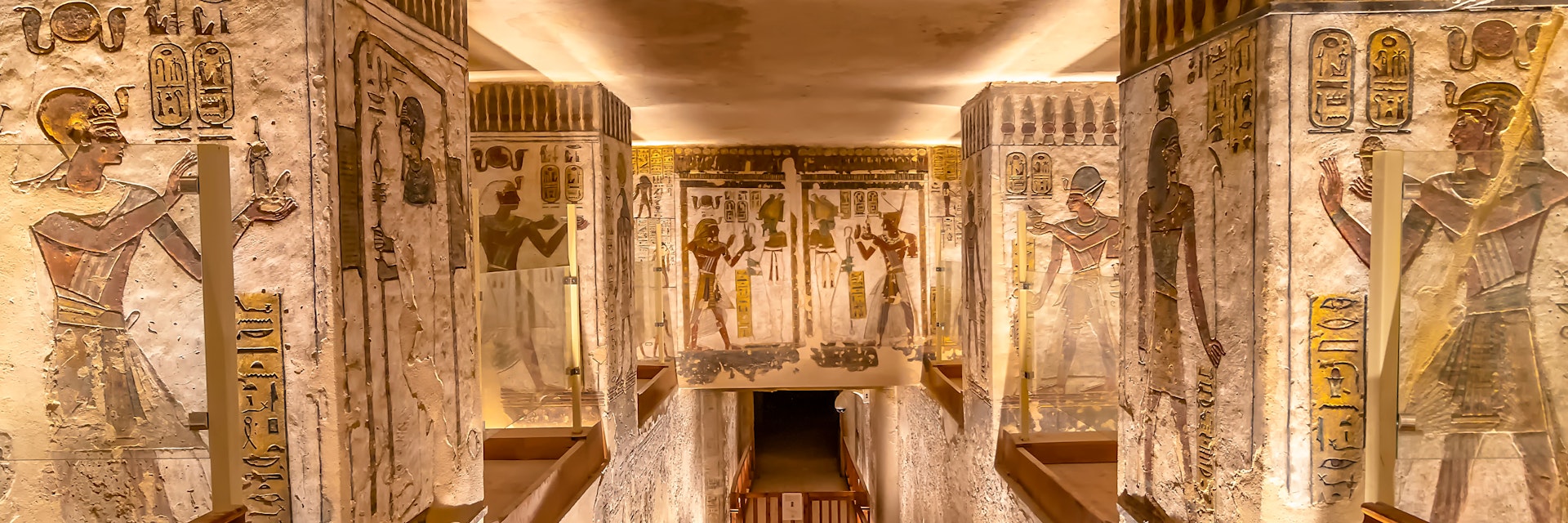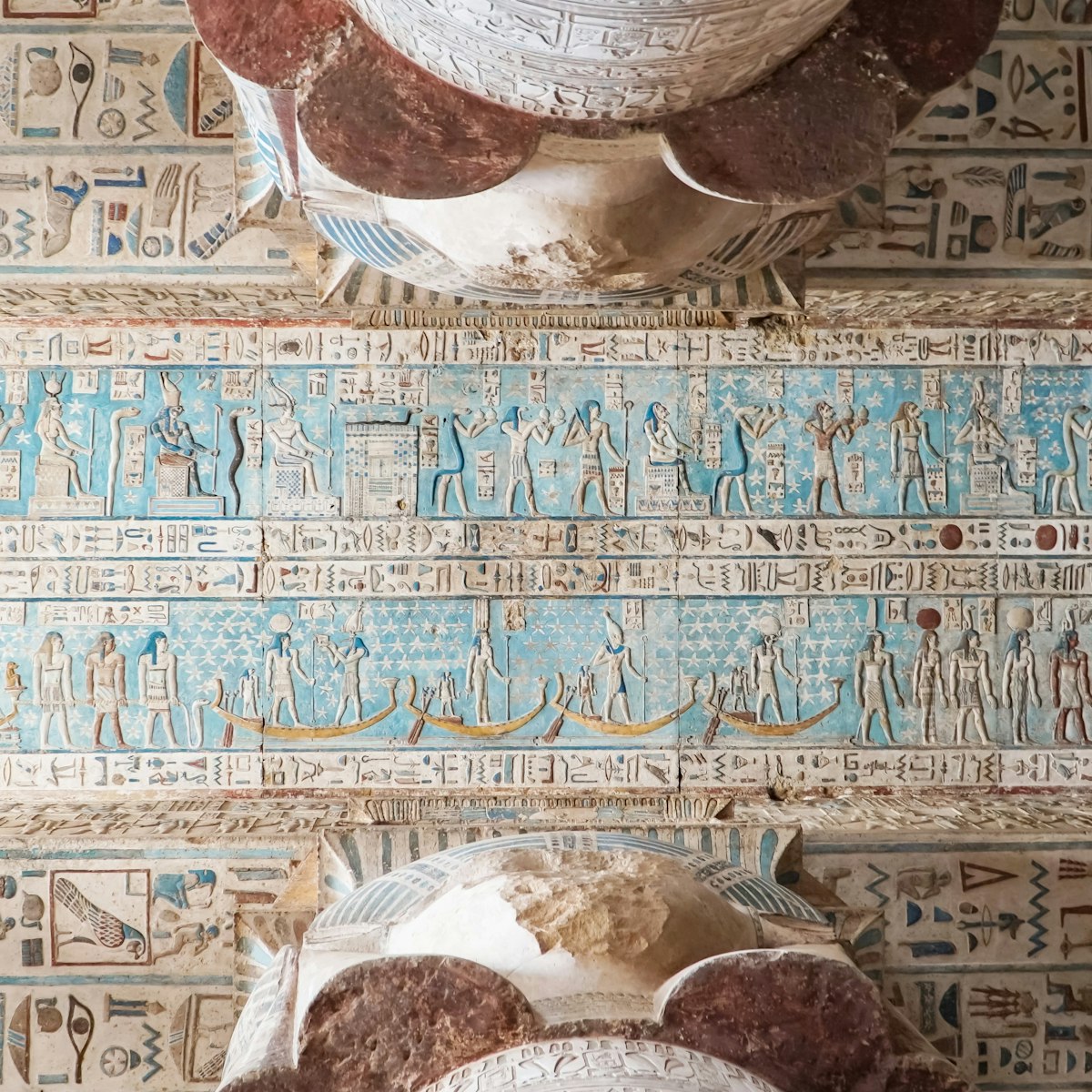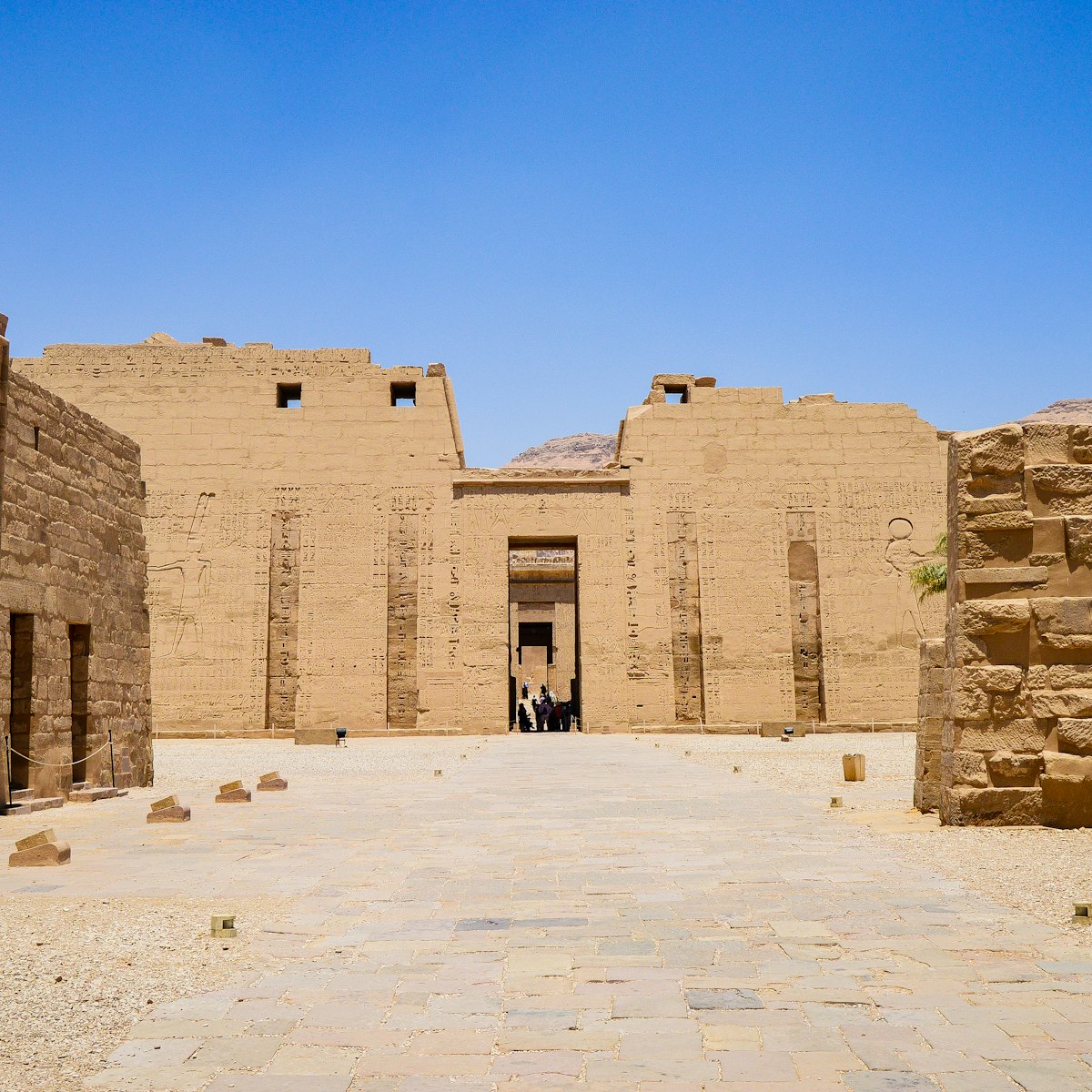One of the most popular tombs in the valley, KV 11 is also one of the most interesting and best preserved. Originally started by Sethnakht (1186–1184 BC), the project was abandoned when workers hit the shaft of another tomb (KV10). Work resumed under Ramses III (1184–1153 BC), the last of Egypt’s warrior pharaohs, with the corridor turning to the right, then left. It continues deep (125m overall) into the mountain and opens into a magnificent eight-pillared burial chamber.
The wonderful decorations include colourful painted sunken reliefs featuring the traditional ritual texts (Litany of Ra, Book of Gates etc) and Ramses before the gods. Unusual here are the secular scenes, in the small side rooms of the entrance corridor, showing foreign tributes, such as highly detailed pottery imported from the Aegean, the royal armoury, boats and, in the last of these side chambers, the blind harpists that gave the tomb one of its alternative names: ‘Tomb of the Harpers’. When the Scottish traveller James Bruce included a copy of this image in his Travels to Discover the Source of the Nile, he was laughed out of London after its publication in 1790.
In the chamber beyond is an aborted tunnel where ancient builders ran into the neighbouring tomb. They shifted the axis of the tomb to the west and built a corridor leading to a pillared hall, with walls decorated with scenes from the Book of Gates. There is also ancient graffiti on the rear right pillar describing the reburial of the pharaoh during the 21st dynasty (1069–945 BC). The remainder of the tomb is only partially excavated and structurally weak.
Ramses III’s sarcophagus is in the Louvre in Paris, its detailed lid is in the Fitzwilliam Museum in Cambridge and his mummy – found in the Deir Al Bahri cache – is now in Cairo’s Egyptian Museum. It was the model for Boris Karloff’s character in the 1930s film The Mummy.








